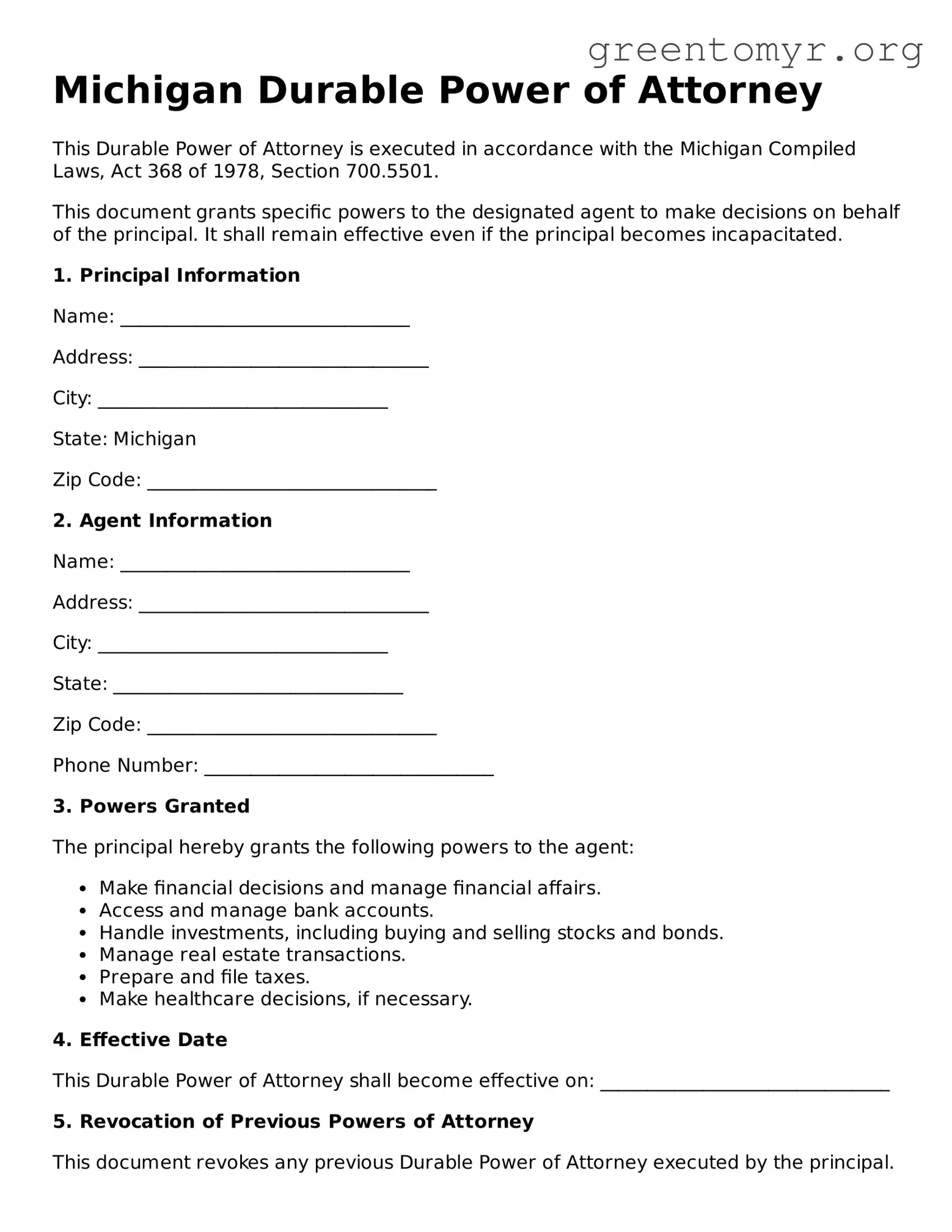Michigan Durable Power of Attorney
This Durable Power of Attorney is executed in accordance with the Michigan Compiled Laws, Act 368 of 1978, Section 700.5501.
This document grants specific powers to the designated agent to make decisions on behalf of the principal. It shall remain effective even if the principal becomes incapacitated.
1. Principal Information
Name: _______________________________
Address: _______________________________
City: _______________________________
State: Michigan
Zip Code: _______________________________
2. Agent Information
Name: _______________________________
Address: _______________________________
City: _______________________________
State: _______________________________
Zip Code: _______________________________
Phone Number: _______________________________
3. Powers Granted
The principal hereby grants the following powers to the agent:
- Make financial decisions and manage financial affairs.
- Access and manage bank accounts.
- Handle investments, including buying and selling stocks and bonds.
- Manage real estate transactions.
- Prepare and file taxes.
- Make healthcare decisions, if necessary.
4. Effective Date
This Durable Power of Attorney shall become effective on: _______________________________
5. Revocation of Previous Powers of Attorney
This document revokes any previous Durable Power of Attorney executed by the principal.
6. Signature of Principal
Date: _______________________________
Signature: _______________________________
7. Witnesses and Notarization
This document must be signed in the presence of two witnesses or a notary.
Witness #1 Name: _______________________________
Witness #1 Signature: _______________________________
Date: _______________________________
Witness #2 Name: _______________________________
Witness #2 Signature: _______________________________
Date: _______________________________
Notary Public: _______________________________
My commission expires: _______________________________
